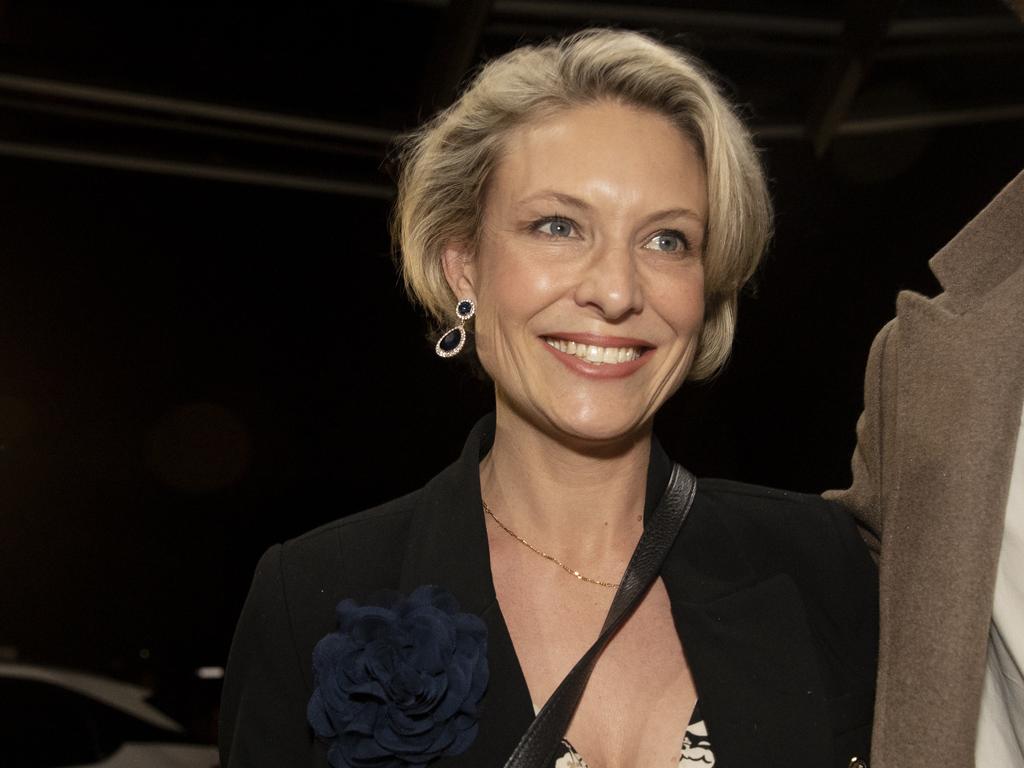
Some Australian politicians hope to reform law to recognise the biological fact of birth sex and give women and girls a positive right to single-sex sport. But the green-left has other ideas.
Labor, the Greens and a raft of left-leaning independent candidates want the status quo on transgender athletes to remain, which gives a green light for biological males to compete against women unless they or an organisation can prove it is unreasonable. Under discrimination law, transgender participation in women’s and girls sport is allowed. Those who oppose it must demonstrate why it is reasonable on a case-by-case basis. Labor leader Anthony Albanese says he believes “girls should compete against girls and boys against boys” in sport but will not support legal reform of the Sex Discrimination Act to protect single-sex sport as a positive right. By saying one thing and doing another, Albanese risks looking like a hypocrite.

Liberal senator Claire Chandler is seeking reform through the Sex Discrimination and Other Legislation Amendment (Save Women’s Sport Bill) to gain legal and positive recognition of female-only sport under the act. The prerequisite requirement is that birth sex must be recognised as biological fact. That alone entails overcoming vast opposition from the green left, transgender activists and major sporting organisations that dictate the terms of engagement in sport.
The International Olympic Committee in March provided a revised framework on gender and sport. The IOC claims it wants to support fairness in women’s sport but has relieved itself of the responsibility to ensure it. The requirement that an athlete’s testosterone level in serum must remain below 10 nmol/L to compete in the female category is gone. Instead, the IOC is permitting individual codes to decide for themselves.
Olympians have made international headlines by speaking out for women-only sports. Multiple gold medal winner Emma McKeon said she would not want to compete against “people who are biologically male”. The InQueensland news website reported that during a Griffith University seminar, she said: “You do want to be inclusive, but you don’t want to have females racing against swimmers who are biologically male … it’s not fair.”

McKeon knows a thing or two about female sport, having won a historic seven medals at the Tokyo Olympics, including three bronze and four gold. She helped set a new world record with the Australian women’s team in the 4x100 freestyle relay. Her concern about biological males competing in women’s sport is politically incorrect – and fair.
Recent research suggests that even after sustained hormone treatment, biological males retain significant physical advantages.
In an article for Sports Medicine, scientists Emma Hilton and Tommy Lundberg tested whether evidence exists to support the assumption that the suppression of testosterone is sufficient to reduce the sporting advantages of males over females. They found that “under the testosterone suppression regimes typically used in clinical settings, and which comfortably exceed the requirements of sports federations for inclusion of transgender women in female sports … evidence for loss of the male performance advantage … is lacking”. They found the data showed “strength, lean body mass, muscle size and bone density are only trivially affected”.
For the British Journal of Sports Medicine, researchers Joanna Harper et al conducted a systematic review of the literature on long-term testosterone-suppressing hormone therapy. They found that after 36 months, the hormone therapy had reduced strength, lean body mass and muscle area in biological males, but their values were still above those found in women.
The debate has come to a head in the US after Lia Thomas, a male-born swimmer who underwent hormone treatment post-puberty, won gold in female swimming competitions. Philly Voice reported that Thomas set six records at the Ivy League Women’s Swimming and Diving Championships. In March, Thomas won the National Collegiate Athletic Association women’s 500-yard freestyle championship. The NCAA rules had allowed transgender athletes to compete after completing 12 months of hormone therapy but were recently changed to reflect the updated IOC framework.

While some celebrated her victories as a step forward for trans rights, others believe it was unfair to female athletes. One of those is Nancy Hogshead-Makar, a four-time Olympic medallist and head of Champion Women, which advocates for girls and women in sports. She believes transgender athletes can fairly compete with women only if they have “mitigated the athletic advantages that come with male puberty”. She contends that despite complying with NCAA rules, Thomas failed to do so.
In Sports Illustrated, Thomas defended competing against females, saying: “I’m a woman, just like anybody else on the team.”
Not all University of Pennsylvania teammates agree. Speaking to the UK Daily Mail on condition of anonymity, one revealed shared concerns such as violation of sexual privacy: “Lia still has male body parts and is still attracted to women … (we) are just supposed to accept being uncomfortable in our own space and locker room for … the feelings of one.”
The issue of male-born transgender athletes competing in female sport could be resolved by allowing women and girls to decide for themselves what is fair. Instead, the state is interfering, with the help of the green left, and overriding justifiable concerns about fairness, equal opportunity and safety for women in sport. It is sexism in a new era.








Sporting greats are crying foul over male-born transgender athletes entering female sports competitions. Olympic medallists join politicians, feminists and parents concerned about the increase of transgender athletes in women’s and girls’ sport.